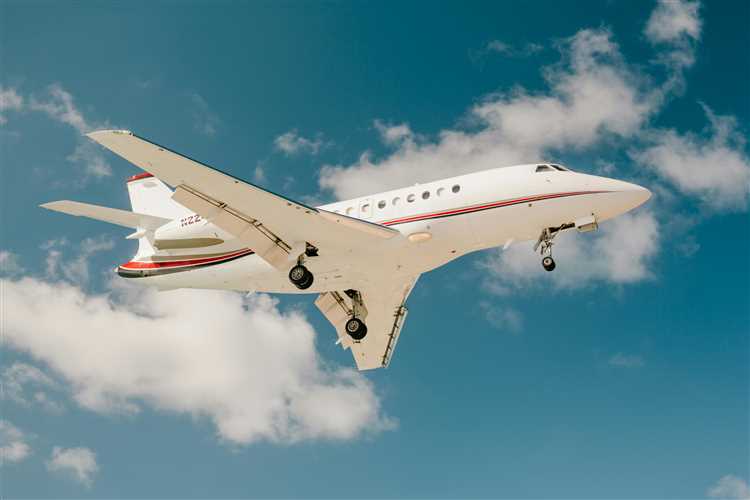
Corporate travel is a crucial aspect of many businesses, but the costs associated with it can quickly add up. One of the largest expenses for companies is airline tickets. However, with the right strategies, businesses can significantly reduce their travel costs without compromising on comfort or convenience. This article outlines essential tips for booking airline tickets effectively, ensuring that your company saves money while still meeting the needs of its travelers.
Understanding pricing patterns and leveraging available resources can make a huge difference in how much a company spends on flights. By making informed decisions and using the right tools, businesses can optimize their travel budgets. This article explores how careful planning and smart booking techniques can lead to substantial savings over time.
From choosing the best time to book to using loyalty programs and travel management tools, these tips offer practical solutions that every business traveler should consider. Whether you are booking a single ticket or arranging group travel, cost-effective strategies can ensure that corporate trips remain within budget while still delivering high-quality travel experiences.
Maximizing Savings on Corporate Flights
Maximizing savings on corporate flights requires a strategic approach that balances cost, flexibility, and convenience. By focusing on the most effective booking techniques and understanding the factors that influence flight prices, businesses can significantly reduce their travel expenses.
One key strategy is to book flights in advance. Airlines typically offer lower prices for tickets purchased well in advance, allowing companies to secure the best deals before prices rise. Additionally, being flexible with travel dates and times can result in considerable savings, as flights during off-peak hours or days tend to be less expensive.
Another effective way to save is by using fare comparison tools. These tools allow businesses to easily compare prices across multiple airlines and booking platforms, ensuring they find the lowest possible fares. Corporate accounts or travel agency partnerships may also provide discounts or special offers.
By employing these strategies, businesses can lower the overall cost of corporate travel while maintaining efficiency and convenience for employees.
Understanding Airline Pricing Strategies
Airline ticket prices are influenced by a variety of factors, making it essential for businesses to understand these pricing strategies to secure the best deals. Airlines use dynamic pricing models, which adjust fares based on demand, booking time, route popularity, and even competitor pricing. Understanding these variables can help businesses plan travel more effectively and avoid unnecessary expenses.
Demand-based pricing is one of the most significant factors in determining ticket costs. During peak travel seasons or on high-demand routes, airlines increase prices due to limited seat availability. Conversely, off-peak travel times, such as mid-week flights or during shoulder seasons, generally offer lower fares.
Booking time also plays a crucial role. Typically, the earlier a ticket is purchased, the cheaper it will be. However, last-minute discounts and offers can sometimes be found, particularly if airlines are trying to fill remaining seats. For corporate travel, setting a policy of booking flights at least 3-4 weeks in advance can lead to significant savings.
Airlines also use fare classes to categorize tickets by price and flexibility. Lower-priced tickets usually come with restrictions, such as non-refundable fares or limited changes, while higher-priced tickets offer more flexibility but at a premium cost. Businesses can save money by choosing the right balance of price and flexibility based on the specific needs of the trip.
Best Times to Book Corporate Tickets
Choosing the right time to book corporate flights is crucial for minimizing costs. By planning ahead and understanding pricing patterns, businesses can secure the best fares. Here are some guidelines to help you determine the best times to book flights for your corporate travel needs:
- Book 3-4 weeks in advance: Booking tickets 3 to 4 weeks prior to departure can result in the best prices, especially for domestic flights.
- Mid-week bookings: Flights on Tuesdays and Wednesdays tend to be cheaper compared to weekend flights, as demand is lower.
- Avoid peak seasons: Booking during busy periods such as holidays or school vacations can significantly raise prices. Aim to avoid these peak times whenever possible.
- Take advantage of fare alerts: Setting up price alerts with fare comparison websites can help you monitor fluctuations and grab the best deals as soon as they appear.
By following these strategies and remaining flexible with travel dates, businesses can reduce flight expenses while ensuring that employees have a comfortable and efficient travel experience.
Leveraging Loyalty Programs for Discounts
Loyalty programs are an excellent way for businesses to save on airline tickets, especially when employees frequently travel for work. By joining airline loyalty programs, companies can access exclusive discounts, earn rewards, and enjoy benefits that reduce overall travel expenses.
- Frequent flyer miles: Many airlines offer frequent flyer programs that allow businesses to accumulate miles with every flight. These miles can be redeemed for free tickets, upgrades, or discounts on future travel.
- Corporate accounts: Signing up for a corporate loyalty program enables businesses to receive bulk booking discounts, priority support, and tailored offers that are unavailable to individual travelers.
- Elite status benefits: Employees who frequently travel can achieve elite status with an airline, which provides additional perks like access to lounges, priority boarding, and extra baggage allowance.
- Partnered airline benefits: Many airlines have partnerships with other carriers or hotels, allowing businesses to earn and redeem points across a wide range of services, further maximizing savings.
By consistently using a single airline or its partners, businesses can maximize their loyalty benefits and significantly reduce corporate travel costs over time.
How to Choose the Right Airlines
Choosing the right airline for corporate travel can significantly impact both cost and convenience. With numerous airlines offering different services, it’s important to focus on several key factors to ensure that you select the most cost-effective and efficient option for your business trips.
Cost and fees: While price is often a deciding factor, it’s crucial to consider additional fees, such as baggage charges, seat selection fees, or change fees. Some low-cost carriers may have lower initial fares but add hidden fees, making them more expensive in the long run.
Flight routes and availability: Ensure that the airline offers direct flights to the required destinations. Non-stop flights can save time and reduce the potential for delays, improving travel efficiency for employees.
Service quality and reliability: Research the airline’s reputation for on-time performance and customer service. An airline with a history of cancellations and delays may end up costing more in terms of lost productivity and frustration.
Corporate partnerships: Some airlines offer corporate travel programs that provide discounts, priority services, and additional benefits for businesses. These programs can streamline booking and reduce overall costs for frequent business travelers.
Streamlining Travel with Group Bookings

Group bookings can be a highly effective way for businesses to manage corporate travel and reduce costs. When multiple employees are traveling to the same destination, booking as a group offers several advantages, from discounts to simplified logistics.
Discounts and special rates: Airlines often offer discounts for group bookings, which can lower the overall cost per ticket. The larger the group, the more likely it is that airlines will provide preferential pricing, making it an ideal option for companies with multiple travelers.
Centralized booking management: Booking as a group streamlines the planning process, as it consolidates all reservations into a single transaction. This minimizes the administrative burden and ensures that everyone is on the same flight, making coordination easier.
Flexible payment options: Many airlines offer flexible payment terms for group bookings, allowing businesses to pay in installments or at a later date. This flexibility can help manage cash flow and reduce financial strain on the company.
Priority seating and upgrades: Some airlines offer priority seating arrangements or even free upgrades for group bookings. This can improve the overall travel experience for employees, ensuring a more comfortable journey.
Cost Control through Travel Management Tools

Travel management tools are essential for businesses aiming to control their corporate travel expenses. These platforms allow companies to book flights, manage itineraries, track expenses, and implement travel policies, all in one place, ensuring cost-effective travel management.
Centralized booking system: Travel management tools enable centralized booking, allowing travel coordinators to easily compare fares, book tickets, and avoid unnecessary changes or cancellations. This centralized process helps businesses identify the most cost-efficient flight options.
Real-time monitoring and reporting: Many tools offer real-time tracking of flight prices and travel spending, helping businesses identify trends, monitor budgets, and adjust their travel strategies accordingly. This transparency allows for better cost management and decision-making.
Policy enforcement: Travel management tools ensure that employees adhere to company travel policies, such as booking in advance, staying within budget, or using preferred airlines. This reduces the chances of overspending and maintains consistent travel practices across the organization.
Expense integration: These tools often integrate with expense management software, making it easier to reconcile travel expenses and streamline the reimbursement process. By combining travel and expense tracking, businesses can gain a more comprehensive view of their corporate travel costs.